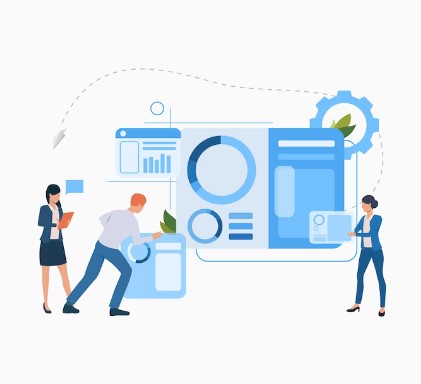Project management software is a specialized tool or set of tools designed to help individuals and teams plan, organize, and execute projects more efficiently. It provides a centralized platform for managing all aspects of a project, from task assignment and scheduling to resource allocation and collaboration. Project management software aims to streamline processes, improve communication, and enhance overall project effectiveness.
Here are the top 10 Project Management Software in 2024:
- Asana:
- Asana is a versatile project management tool that allows teams to plan, track, and manage work.
- Trello:
- Known for its visual boards, Trello is a user-friendly project management tool that uses cards and boards to organize tasks.
- Jira:
- Particularly popular among software development teams, Jira by Atlassian is a robust tool for issue tracking and project management.
- Monday.com:
- Monday.com is a work operating system that powers teams to run projects and workflows with confidence.
- Wrike:
- Wrike is a collaborative project management platform that offers flexibility and customization for various industries.
- Microsoft Project:
- Microsoft Project is a comprehensive project management tool that integrates with other Microsoft Office products.
- Smartsheet:
- Combining the simplicity of a spreadsheet with the power of a database, Smartsheet is a flexible work execution platform.
- ClickUp:
- ClickUp is an all-in-one project management platform that includes task management, document sharing, and goal tracking.
- Notion:
- Notion is an all-in-one workspace that combines note-taking, task management, and collaboration features.
- Airtable:
- Airtable is a spreadsheet-database hybrid that allows users to organize and collaborate on work in a flexible way.
Benefits of Project Management Software
Project management software offers a wide range of benefits for individuals and teams involved in planning, organizing, and executing projects. Here are some key advantages:
- Improved Collaboration:
- Facilitates communication and collaboration among team members, even if they are geographically dispersed. Features like real-time updates, comments, and document sharing enhance teamwork.
- Task Organization and Tracking:
- Enables efficient organization and tracking of tasks, ensuring that team members are aware of their responsibilities and deadlines. This helps prevent oversights and delays.
- Resource Allocation:
- Assists in managing and allocating resources effectively, ensuring that team members and materials are utilized optimally to meet project goals.
- Timeline and Deadline Management:
- Provides tools for creating and managing project timelines, milestones, and deadlines. This helps in visualizing the project’s progress and ensuring that tasks are completed on time.
- Document Management:
- Centralizes project-related documents, making it easy for team members to access and collaborate on files. This reduces the risk of version control issues and enhances document security.
- Improved Communication:
- Enhances communication through features such as messaging, notifications, and discussion forums. This reduces reliance on email and fosters more efficient and transparent communication.
- Risk Management:
- Allows for the identification and management of project risks. Teams can assess potential issues, develop mitigation strategies, and monitor risk factors throughout the project lifecycle.
- Cost Control:
- Helps in monitoring and controlling project costs by providing tools for budgeting, expense tracking, and resource management. This is crucial for keeping projects within budget constraints.
- Real-Time Reporting:
- Generates real-time reports on project progress, allowing stakeholders to stay informed without relying on manual updates. This transparency aids decision-making and helps in addressing issues promptly.
- Scalability:
- Adapts to the needs of projects of varying sizes and complexities. Project management software can be scaled up or down, making it suitable for small teams as well as large enterprises.
- Client Collaboration:
- Some project management tools include features for client collaboration, allowing clients to stay informed about project progress, provide feedback, and participate in discussions.
- Increased Productivity:
- By streamlining processes, reducing administrative tasks, and enhancing collaboration, project management software contributes to increased overall productivity and efficiency.
- Historical Data and Analytics:
- Captures historical project data, providing valuable insights for future projects. Analytics and reporting features enable teams to learn from past experiences and continuously improve their processes.
- Adherence to Methodologies:
- Supports various project management methodologies, such as Agile or Waterfall, helping teams follow best practices and deliver projects with a structured approach.
Conclusion
In today’s fast-paced and dynamic business environment, project management software has become an essential tool for organizations of all sizes. The right software can streamline processes, improve collaboration, and enhance overall productivity.
